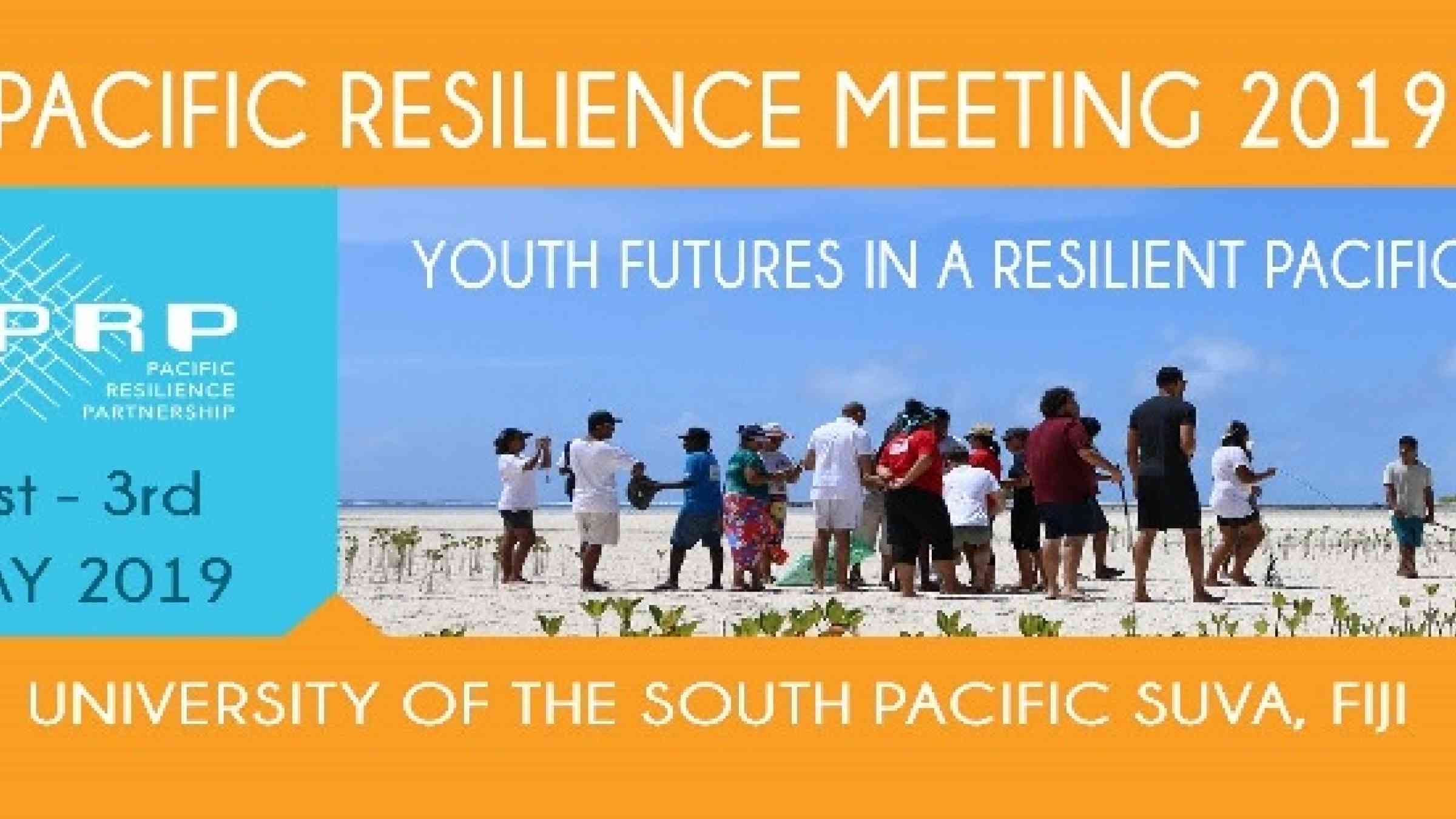Youth are key to a resilient Pacific

SUVA, 12 May 2019 – The inaugural Pacific Resilience Meeting has closed with a call to pursue two critical pathways towards resilient and sustainable development in an era of increasing impact from climate change.
The Meeting – under the theme of ‘Youth Futures in a Resilient Pacific’ – highlighted the urgent need to tap the energy and talent of young people as drivers of greater climate and disaster resilience.
In tandem, ‘core ministries’ – such as planning, finance and economy – have to embed climate and disaster risk management at the heart of government investment planning and decision making.
Armed with this powerful Outcome Statement, the 100-strong Pacific constituency will advocate this dual path to resilience at next week’s Global Platform for Disaster Risk Reduction in Geneva.
University of South Pacific student Ms. Zakiyyah Ali opened the panel on disaster and climate resilience after winning an essay competition for her vision of a safer and resilient future.
“The Asia and the Pacific region has over 1 billion young people, constituting more than half of the global youth population,” Ms Ali said. “Given this, young people have a very valid need to participate in disaster risk reduction through policy making, through advocacy, through protests.
“However the reality is that, as a marginalised group, young people in the Pacific, face extraordinary hurdles to get their voices heard and valued.”
The three-day Pacific Resilience Meeting brought together over 300 representatives from government, regional organizations, civil society, private sector, academia and development partners.
The Chairperson of the Pacific Resilience Partnership Taskforce Mr. Engel Raygadas of French Polynesia said the Meeting provided a boost to implementation of the Framework of Resilient Development in the Pacific: An Integrated Approach to Climate Change Adaptation and Disaster Risk Management 2017-2030.
“This Resilience Partnership and Meeting was established by Pacific leaders to support the implementation of the Framework. Because of increasing climate and disaster risk, the region has to develop in a smart and sustainable way,” Mr Raygadas.
“We have to care for our islands and our oceans to adapt to the reality of climate change. Pacific leaders want to see more collaboration and coherence around how we do this.”
The Pacific Resilience Meeting was preceded by a Youth Forum which issued its own Outcome Statement ‘Nothing About Us Without Us’ with recommendations on how to better partner with young people.
In the margins of the Meeting, the UN Office for Disaster Risk Reduction and the Government of Australia held a series of consultations in preparation or the Asia Pacific Ministerial Conference of Disaster Risk Reduction (APMCDRR 2020), which will be held for the first time in the Pacific region in Brisbane, Australia in June 2020.
The Pacific Resilience Meeting was held at the University of the South Pacific, Suva, Fiji from 1 to 3 May 2019. It was organized by The Pacific Resilience Partnership (PRP), which is a unique partnership to support the implementation of the Framework for Resilient Development in the Pacific. The PRP is comprised of representatives from countries and territories in the region; civil society and private sector; and regional organisations and development partners.
Links
- Visit the Pacific Resilient Partnership Facebook page: https://www.facebook.com/PacificResiliencePartnership
- Visit the Resilient Pacific website: http://www.resilientpacific.org/